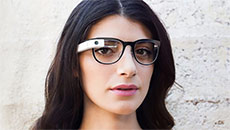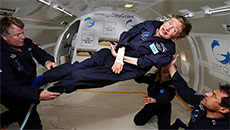There's bad news for bomb-sniffing dogs: researchers have found a way to increase the sensitivity of a light-based sensor to detect incredibly minute amounts of explosives.
The tiny laser sensor can even sniff out a hard-to-detect explosive called pentaerythritol tetranitrate (PETN), a favourite among terrorists.
Small amounts of PETN pack a powerful punch and being a plastic, it escapes x-ray machines when not connected to detonators.
PETN was found in Richard Reid's shoe bomb in 2001 and Umar Farouk Abdulmtallab's underwear bomb in 2009.
“The ability to magnify a small trace of an explosive to create a detectable signal is a major development in plasmon sensor technology,” said lead researcher Xiang Zhang, a professor of mechanical engineering at University of California Berkeley.
During trials, the laser sensor device successfully detected very low concentration of various explosives, including dinitrotoluene (DNT), ammonium nitrate and nitrobenzene.
According to the study, the new sensor could have many advantages over current bomb-screening methods.
Bomb-sniffing dogs are expensive to train and they get tired.
Swabs, commonly used at airports to detect explosive residue, have relatively low-sensitivity and involve physical contact.
"Our technology could lead to a bomb-detecting chip for a handheld device that can detect the tiny-trace vapour in the air of the explosive's small molecules,” informed co-author Ren-Min Ma, an assistant professor of physics at Peking University in China.
The sensor could also be developed into an alarm for unexploded land mines that are otherwise difficult to detect, the researchers said.
The nanoscale plasmon sensor used in the lab experiments is much smaller than other explosive detectors on the market.
Zhang said the new sensor creates a much stronger signal than the passive plasmon sensors currently available, which work by detecting shifts in the wavelength of light.
The findings were published in journal Nature Nanotechnology.





